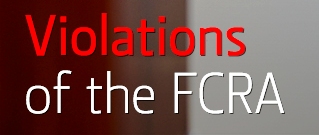Lessons from the Amnesty India episode

Recently Amnesty India International Pvt. Ltd. and its former CEO, Mr. Aakar Patel have been slapped with penalty of INR 51.72 Crore and INR 10 Crore respectively. This action was initiated by the Central Government on the ground that Amnesty International, UK had been remitting “huge amount” of foreign contributions through its Indian entities (companies without FCRA license) following the FDI route, in order to allegedly evade the Foreign Contribution Regulation Act (FCRA) to expand its NGO activities in India.

This should be an ‘eye opener’ for all those trying to take advantage of loopholes under the law.
Because obtaining Registration or Prior Permission under FCRA is difficult some tend to think that a quick-fix solution to this dilemma is to register as a Private Company and receive foreign funds under a ‘works contract’ or ‘vendor agreement’!
Does a Private Company require FCRA license?
The answer can be found on the official website: https://fcraonline.nic.in
Click on the FAQ tab: https://fcraonline.nic.in/home/PDF_Doc/fc_faq_16112020.pdf
Scroll down to page number 7 and read the answer to FAQ No. 5:
Q.5 Can a private limited company or a partnership firm get registration or prior permission under FCRA, 2010?
Answer. Yes, a private limited company too may seek prior permission/registration for receiving foreign funds in case they wish to do some work useful/beneficial to society.
In other words, while foreign remittance received by a private limited company in the normal course of its business would be covered under Foreign Exchange Management Act (FEMA); if funds are received from a ‘foreign source’ for “a definite cultural, economic, educational, religious or social programme” the private limited company must seek registration or prior permission of the Home Ministry under FCRA 2010 before receiving the same.
Service contracts – solution or snare!
Some NPOs not having registration or prior permission under FCRA seem to think that FCRA can conveniently be bypassed by avoiding receipt of funds from ‘foreign source’ in the form of ‘donations’ or ‘grants’ and instead enter into commercial ‘service contracts’ and charge fee for professional services rendered in India.
Explanation 3 to Section 2(1)(h) of FCRA 2010 states: “Any amount received, by any person from any foreign source in India, by way of fee (including fees charged by an educational institution in India from foreign student) or towards cost in lieu of goods or services rendered by such person in the ordinary course of his business, trade or commerce whether within India or outside India or any contribution received from an agent or a foreign source towards such fee or cost shall be excluded from the definition of foreign contribution within the meaning of this clause.“
Accordingly, if an NPO charges a fee or cost in lieu of services rendered by it, in the ordinary course of its business, such fee or cost shall be excluded from the definition of foreign contribution within the meaning of Section 2(1)(h) of FCRA 2010. In other words it would not be treated as ‘foreign contribution’ and such fees for services can be received without FCRA registration or prior permission.
However, the NPO should stay mindful that under FCRA, if the NPO in essence is receiving funds for a “definite cultural, economic, educational, religious or social programme” it cannot receive funds for such programs without FCRA license.
Conclusion
- Receiving a ‘grant’ disguised or camouflaged as a service or works contract would be fraught with risk for any entity that does not have prior permission or is not registered under FCRA;
- Establishing a private company to receive foreign contributions is not a solution to bypass FCRA.